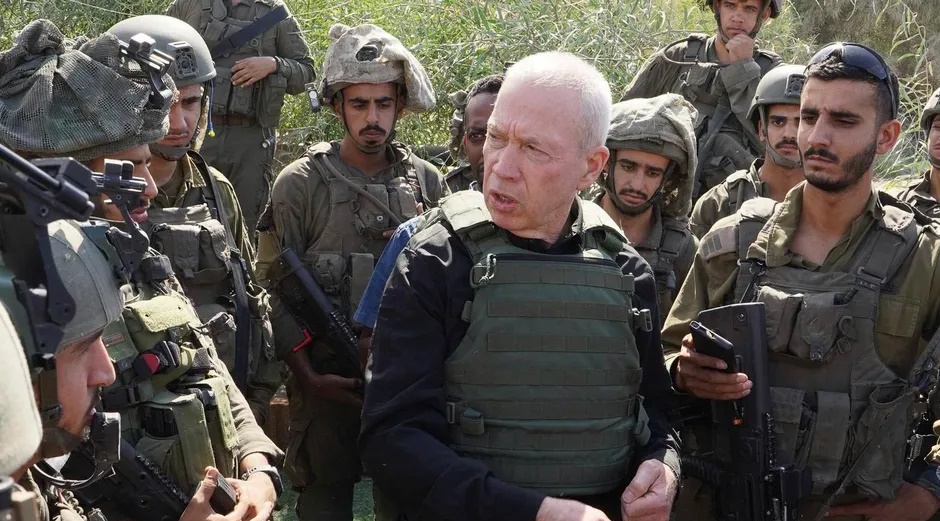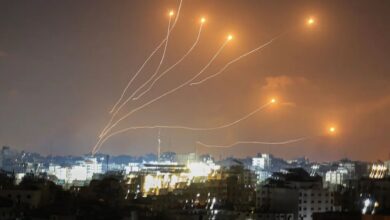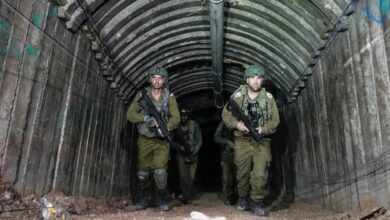“Deadly, precise and surprising” – Israel announces attack on Iran
Israel continues to bomb southern Beirut and a target in Syria.

Defense Minister Gallant threatens Iran. And: For the first time since the end of August, US President Biden has spoken to Israeli Prime Minister Netanyahu. The overview.
What happened?
Israel’s military has again attacked targets in the suburbs south of Beirut. According to Lebanese authorities, five members of the civil defense were killed. They were in a civil defense center in the town of Derdghaja at the time of the attack, the Lebanese Ministry of Health said. The ministry condemned the attack on aid workers and rescuers in Lebanon: Israel is once again violating international laws and humanitarian conventions.
The civil defense confirmed the attack on its employees and announced that they were on standby at the time of the attack. The information cannot currently be independently verified.
Israel’s army initially did not comment on the reports when asked. However, it reported that 220 missiles had been fired from Lebanon into Israel since the morning.
The Israeli armed forces also reported that they had killed a high-ranking official of the pro-Iranian Hezbollah in Syria. The Israeli air force had “hit and eliminated Adham Jahut, a terrorist from the Hezbollah terrorist cell ‘Golan Terrorist Network’ in Syria,” the army said.
According to these reports, Jahut acted as an intermediary who “passed on information from Syrian government circles to Hezbollah.” The attack took place in the area of Qunaitra in southwestern Syria near the Golan Heights.
Israel rarely provides information about attacks in Syria, but does not want to allow an expansion of the Iranian presence in Syria.
Iran, Hezbollah’s protecting power, carried out a large-scale rocket attack on Israel last Tuesday evening. According to the Israeli army, a large proportion of the approximately 200 Iranian missiles were intercepted. Tehran says it has reacted to the Israeli military offensive in southern Lebanon against the pro-Iranian Hezbollah militia and the killing of its leader Hassan Nasrallah.
What happens next?
So how will Israel react to this Iranian attack? Israel’s defense minister gave an outlook on Wednesday on what Tehran can expect: “Our attack in Iran will be deadly, precise and surprising,” Yoav Gallant said in a statement published on online networks on Wednesday. Anyone who tries to harm the State of Israel will “pay a price,” Gallant added.
As the US news portal Axios reports, the Israeli security cabinet is to discuss the retaliatory strike against Iran this Thursday. Prime Minister Netanyahu has called the meeting. According to Israeli law, the head of government needs the approval of the security cabinet for decisions on far-reaching military actions. An analysis of Israeli options can be found here .
What do Biden and Harris say to the Israeli prime minister?
Can a military reaction by Israel still be prevented or mitigated? Since the Iranian attack, there have been increased international efforts to prevent a further escalation of the conflict. On Wednesday, for example, US President Joe Biden spoke to Israeli Prime Minister Benjamin Netanyahu on the phone for the first time in almost two months. Vice President Kamala Harris also took part in the conversation, the White House announced. It was the first personal conversation between Biden and Netanyahu since the end of August.
According to reports, Biden reiterated his “iron-clad” support for Israel’s security in the phone call and strongly condemned the Iranian missile attack on Israel on October 1. He emphasized Israel’s right to self-defense against the Hezbollah militia, but at the same time urged consideration for the civilian population, especially in the densely populated areas of the Lebanese capital Beirut.
What Biden said about a possible retaliatory attack by Israel was not made public. However, the US President had stated last week that he would not support a strike on nuclear targets in Iran. Biden also advised against attacks on oil industry infrastructure.
According to the White House, another topic of discussion was the situation in the Gaza Strip. Biden and Netanyahu stressed the need to free the hostages held by Hamas. In view of the humanitarian situation of the Palestinian civilian population, the US President also pushed for the restoration of access to the north of the Gaza Strip.
Relations between Washington and Tel Aviv are currently strained, especially because of the Israeli military’s conduct of the war, which has been criticized in parts of the USA.
The US ambassador to the UN also spoke out clearly about the great human suffering caused by the war in the Gaza Strip: “These catastrophic conditions were predicted months ago, and yet nothing has been done. That must change, and now,” said Linda Thomas-Greenfield before the United Nations Security Council. “We call on Israel to take urgent action.”



